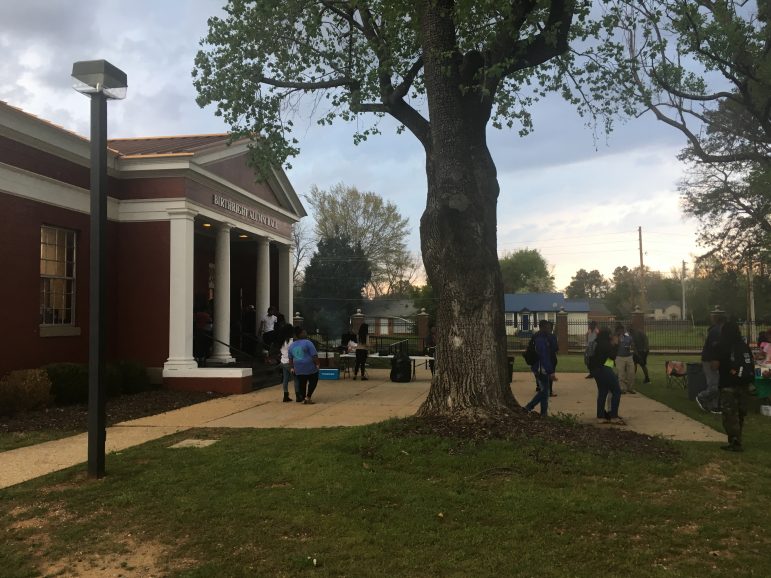U.S. Sen. Doug Jones will host the first annual Historically Black Colleges and Universities (HBCU) Summit Friday at Lawson State Community College. There, Jones says, educators, administrators, and students will discuss factors that pose the greatest threat to HBCUs, and opportunities ahead, specifically in terms of funding.
“Getting these folks together in one place to compare notes, talk about their challenges but also talk about their best practices, I think is going to be helpful to each of them,” Jones says. “It’s going to be helpful to me and my staff about what we can do to help them going forward.”
Alabama has more HBCU’s than any state in the nation. Many of those schools struggle financially to stay afloat. Stillman College in Tuscaloosa two years ago was working to climb out from under a mountain of debt. During his time in the Senate, Jones has worked to boost federal funding of HBCU’s and other minority-serving institutions. In March, he secured a 14 percent increase in federal funding through the omnibus spending bill. That brought funding from $244.7 million in FY17 to $279.6 million in FY18.
The funding increase followed a request made by Senators Jones and Kamala Harris last year in a letter to the leadership of the Senate Appropriations Subcommittee on Labor, Health and Human Services, Education, and Related Agencies.
Jones says HBCUs can determine how best to use that money, whether it’s infrastructure or staffing. “This money can go into their coffers to use as they see fit,” Jones says.
The United Negro College Fund estimates Alabama’s HBCUs have an economic impact of $1.5 billion. The state has 14 HBCUs; Concordia College closed last year. Jones says some of the financial challenges stem from the significantly smaller endowments many of these schools have, which forces them to rely more on tuition for revenue. Sharp rises in tuition, he says, lead to lower enrollment. Friday’s summit includes a grant-writing workshop to help HBCU leaders leverage the most money they possibly can, Jones says. There will also be a job fair for students.
Almost two years ago, HBCU leaders met in the Oval Office with President Donald Trump. The president then signed an executive order moving the federal program that supports HBCUs from the U.S. Department of Education back to the White House. The idea as it was presented then was that the administration could possibly send more funding to HBCUs in the future. But Jones says Trump hasn’t made good on that pledge. The increases in HBCU funding have all come through efforts in Congressional, he says.
“That was a wonderful photo-op that the president had right after taking office, but I don’t think that they have matched that photo opportunity with dollars,” Jones says.
Birmingham Mayor Randall Woodfin is expected to speak at Friday’s summit, as well as a number of Alabama HBCU administrators.

